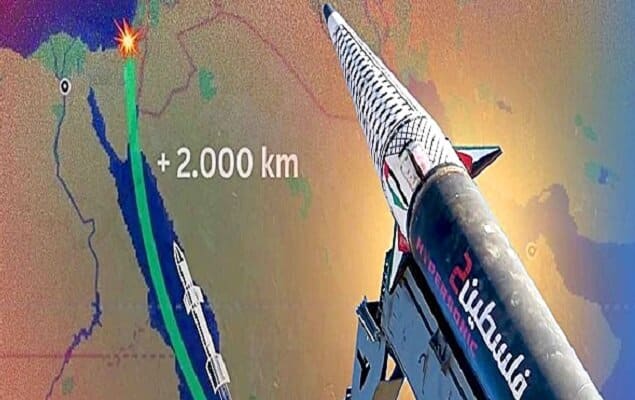Why Israel is powerless against Yemeni missiles: From military surprise to lack of information.
According to Al Jazeera, the increase in Yemeni ballistic missile attacks deep into the occupied territories has sent several messages to the regime and has raised deep concerns in the occupied territories about the Yemeni front and the Zionist inability to counter these missiles. This is while the scope of the Yemeni armed forces’ targets has expanded and includes the strategic infrastructure of the Zionist regime.
The Yemeni armed forces recently targeted the Orot Rabin power station in the town of Al-Khudeira, south of Haifa, with a Palestine 2 supersonic missile.
The Zionist regime’s blind spot
Experts and analysts of strategic issues of the Zionist regime believe that the regime has been surprised by the developments on the Yemeni front and cannot strengthen its military forces and weapons against the Houthis and currently has no opportunity to deter the Yemeni forces.
Zionist analysts believe that it is currently not possible to fill the gap caused by the lack of intelligence information from the Zionist regime or the power to eliminate the threats from the Yemenis.
In an article on the Walla news site, Ofir Dayan, the Zionist regime’s strategic, security and media advisor, stated that the Yemenis must be taken seriously, emphasizing that the Israeli media institutions’ cover-up of the nature of the Yemeni missile attacks targeting the regime’s strategic infrastructure cannot reduce its damage.
Dayan believes that the Zionist regime’s security and intelligence services do not have information about the structures and nature of Ansar Allah’s activities and strategic attacks, which has created a real threat to Israel’s domestic front and has raised deep concerns about the spread of these attacks.
He adds that it seems that the Zionist society has not yet understood the nature of the Yemeni threats and does not have the power to understand their ideology.
The Yemeni Strategic Threat
Eyal Zisser, an analyst for Middle East and Africa and vice president of Tel Aviv University, believes that the Yemenis are a strategic threat to Israel, although in the past they were thought to be a secondary threat, today it is clear that Yemen is a central threat to Israel.
In his article in the Israel Hayom newspaper, he writes that the international coalition led by Washington has also failed to prevent the Yemeni attacks because the coalition’s attacks against Yemen are limited and cannot affect the missile and military capabilities of the Yemeni armed forces.
Emphasizing that the Yemeni arena is considered an important arena, Zisser stated that this threat is not based only on targeting the depth of the Zionist regime, but rather they are a real threat whose danger is becoming wider day by day and is showing its negative effects on the lives of Israelis and may lead the process of developments towards an all-out war.
This senior analyst of Israeli issues also pointed to the paralysis of the regime’s navigation in the Red Sea and the closure of the port of Eilat, emphasizing that this has also caused some economic damage to Egypt.
The Israeli “Mushaaf” Strategic Security Academy also believes that Israel was surprised by the Yemeni attacks and was not prepared to confront this threat.
Dr. Yossi Mansharoff, the author of this article, adds that the challenge of Ansar Allah for Israel has become more tangible than ever with the Tel Aviv ceasefire with Hezbollah in Lebanon, and Ansar Allah’s ballistic missiles have expanded, and Israeli attacks have not been able to create an obstacle to these attacks.
He considered the power structure among the Yemeni armed forces to be diverse, emphasizing that these capabilities have expanded based on Iranian assistance and technical knowledge and that the Yemeni armed forces themselves have shown great ability in using this equipment.
The report adds that the Zionist regime, with greater cooperation from the United States under the new President Donald Trump, who has shown greater concern for Israel, should take action to fill the gaps caused by these threats and create a joint strategy with them in confronting Ansar Allah.

